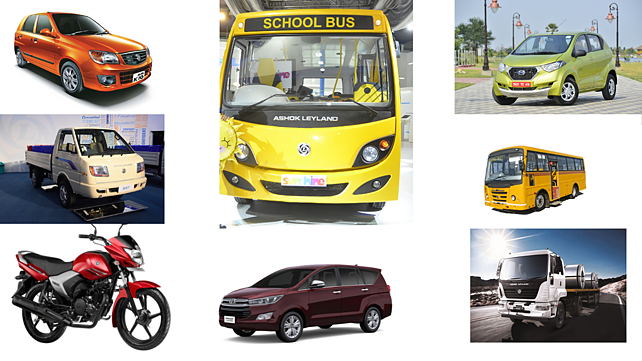
Retail sales of vehicles in the country continued to disappoint in December 2021, the Federation of Automobile Dealers Associations (FADA) said in its latest monthly vehicle retail data. In what has clearly been an underperforming year, total vehicle retails for the month of December 2021 dropped by -16% on a YoY basis.
Even when compared to two years prior data – in December 2019, which was a regular pre-COVID month – overall retails continue to fall by -6%.
Vinkesh Gulati, President, FADA said the month of December is usually seen as a high sales month, where OEMs continue to offer best discounts to clear the inventory due to change of year. “It was, however, not the case this time around as retail sales continued to disappoint thus wrapping up an underperforming calendar year,” he said.
Three-wheelers and commercial vehicle segments grew 59% and 14% respectively on a YoY basis. However, two-wheelers, passenger vehicles and tractors fell by -20%, -11% and -10% respectively. From a future perspective, the situation continues to be grim considering the third COVID wave with increasing number of cases in the country owing to the Delta/Omicron variants.
PV sales continue to face the brunt of semi-conductor shortage with consistent long waiting periods. FADA said December retails closed in the red for PVs, despite of huge bookings. Dealers, however, saw slight ease in vehicle supply thus giving some hope of improvement.
The two-wheeler segment, unfortunately, continues to show no sign of recovery as customers remain cautious with high cost of ownership, bad rural sentiment, and continued work from home situation in addition to the scourge of the COVID pandemic.
FADA noted that the M&HCV segment continue healthy growth with low base of last year, and that has brought CV sales at almost pre-COVID levels. The government’s push for infrastructure spending, especially road infrastructure, better freight rates, price hike announcement in January and a low base helped the overall segment close in positive double digits, said the association.
| All India Vehicle Retail Data for December 2021 | |||||
| CATEGORY | Dec-21 | Dec-20 | YoY % | Dec-19 | % Chg, Dec-19 |
| 2W | 11,48,732 | 14,33,334 | -19.86% | 12,75,501 | -9.94% |
| 3W | 44,288 | 27,766 | 59.50% | 58,657 | -24.50% |
| PV | 2,44,639 | 2,74,605 | -10.91% | 2,18,881 | 11.77% |
| TRAC | 62,250 | 69,415 | -10.32% | 51,024 | 22.00% |
| CV | 58,847 | 51,749 | 13.72% | 59,517 | -1.13% |
| - LCV | 36,047 | 34,167 | 5.50% | 38,268 | -5.80% |
| - MCV | 4,099 | 2,499 | 64.03% | 3,014 | 36.00% |
| - HCV | 16,066 | 11,278 | 42.45% | 15,385 | 4.43% |
| - Others | 2,635 | 3,805 | -30.75% | 2,850 | -7.54% |
| Total | 15,58,756 | 18,56,869 | -16.05% | 16,63,580 | -6.30% |
| Source: FADA Research | |||||
From a near term outlook perspective, the association put out an extremely cautious outlook over the next two to three months. The surge of COVID cases has meant various state governments already announced restrictions, which means work and education from home will resume, and in some cases continue, thus leaving a negative effect for auto retail. The fear of healthcare expenses rising again, the customers are shying away from closing their purchase decisions.
FADA’s internal members’ survey, meanwhile, found that average inventory for passenger vehicles ranges from eight to 10 days, while that of two-wheelers ranges from 30-32 days. Close to one-third of the members surveyed put the market sentiment as ‘bad’, while 36.4% expressed confident sentiment.
The liquidity situation in dealerships seems to be good with 45.1% dealers responding positively, while 25.4% said the liquidity situation is bad and 29.5% remained neutral
Only 29.5% of the surveyed dealers expect the current month – January 2022 – to witness growth, while 39.3% believe sales would remain flat and 31.2% expect retail sales to de-grow.